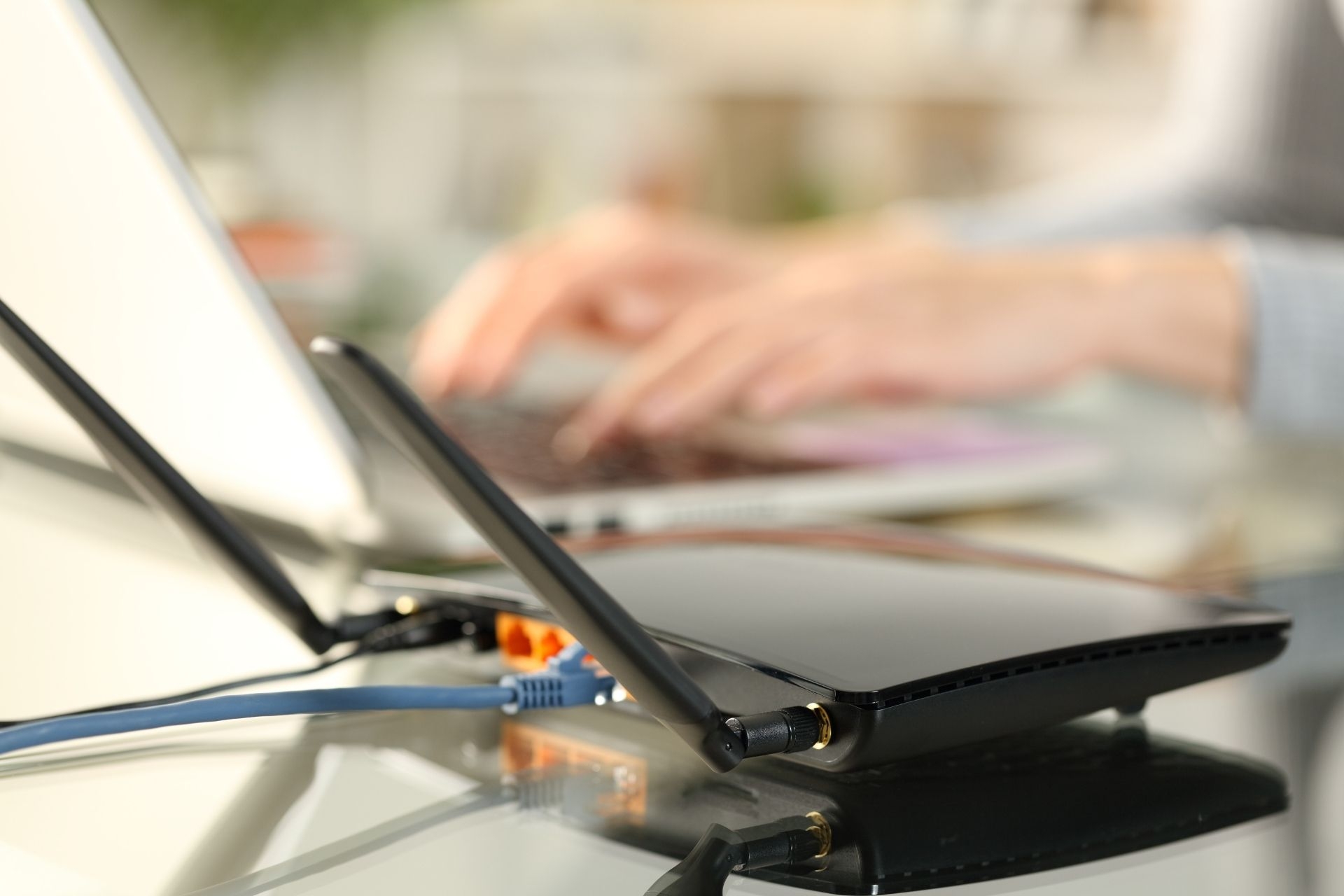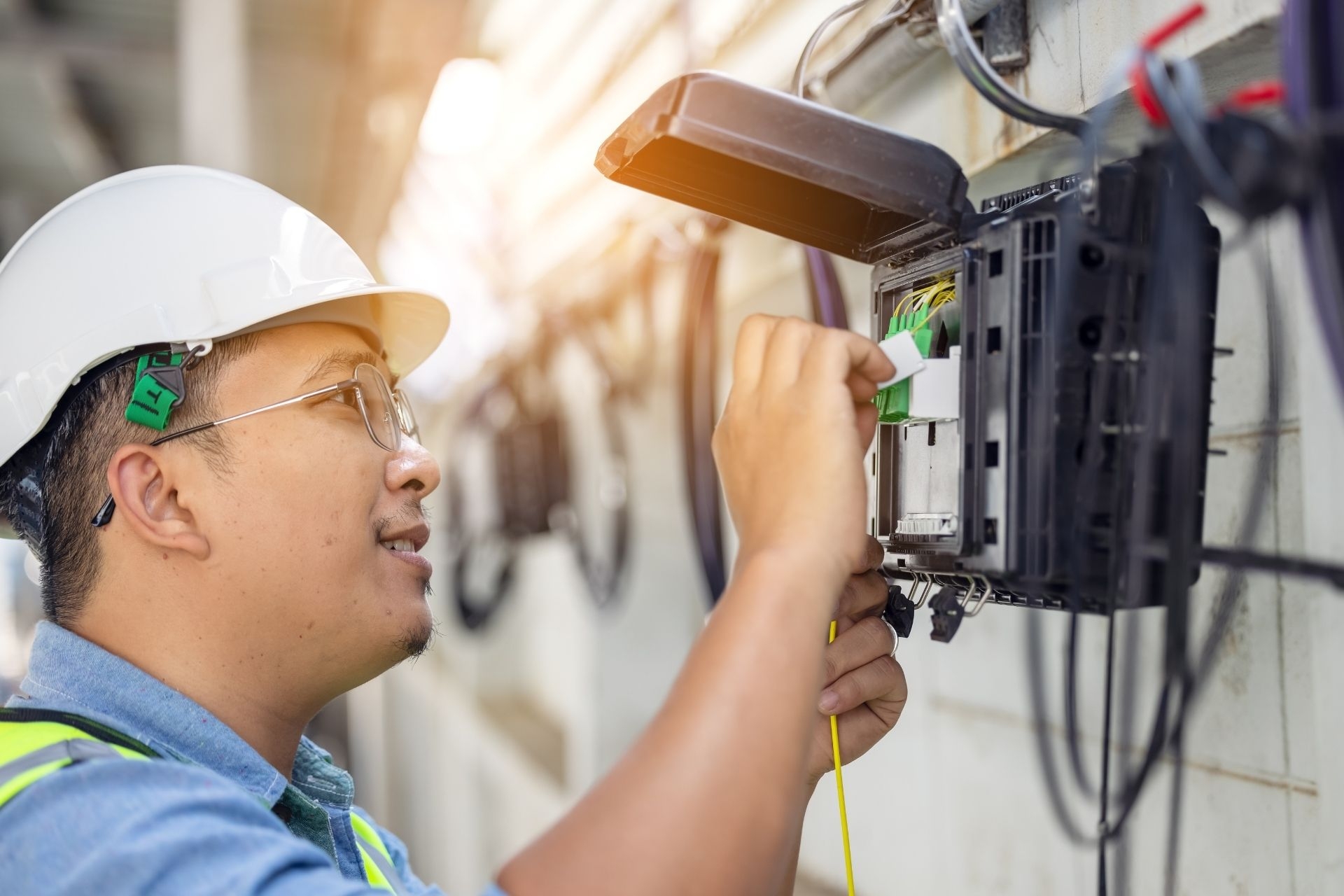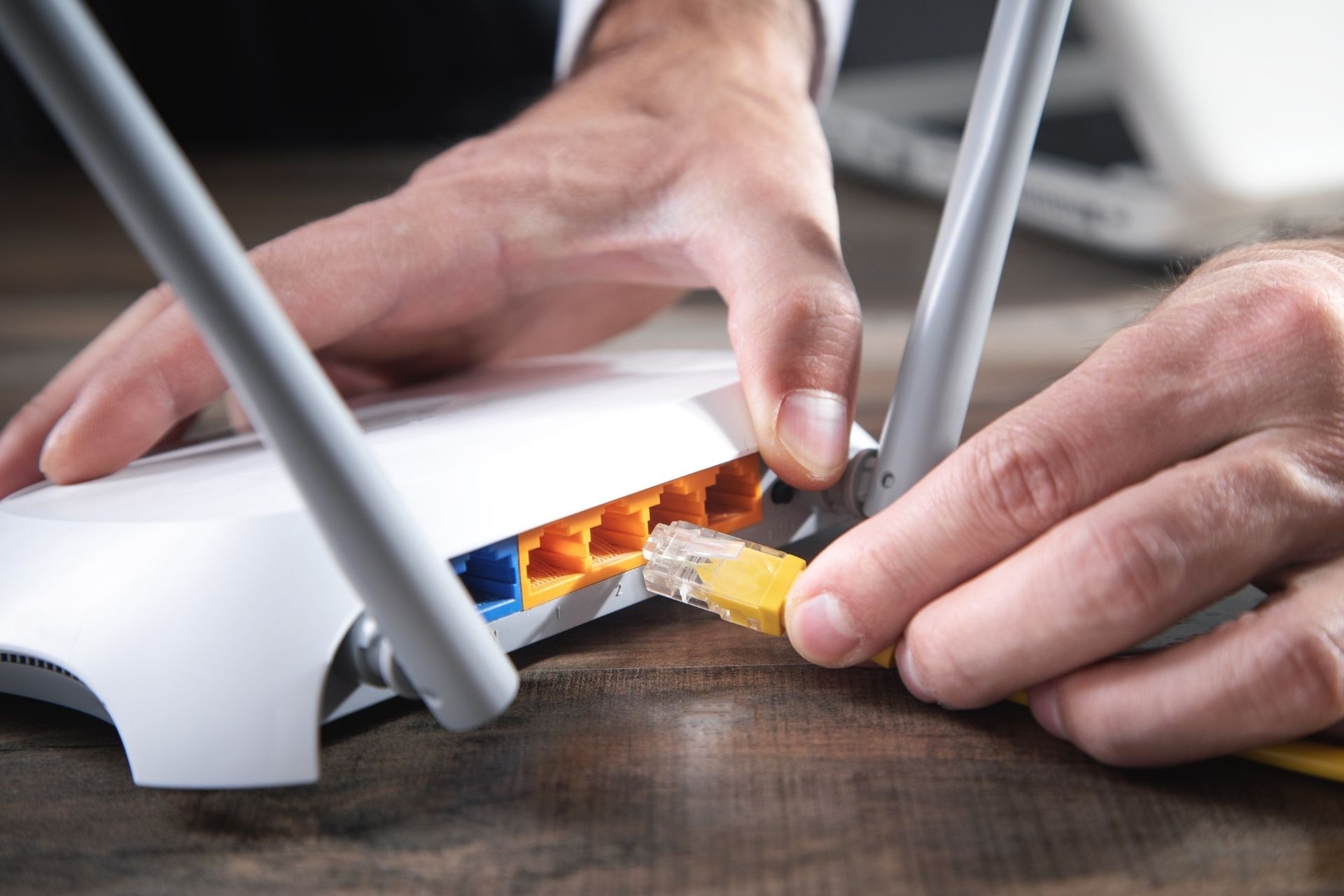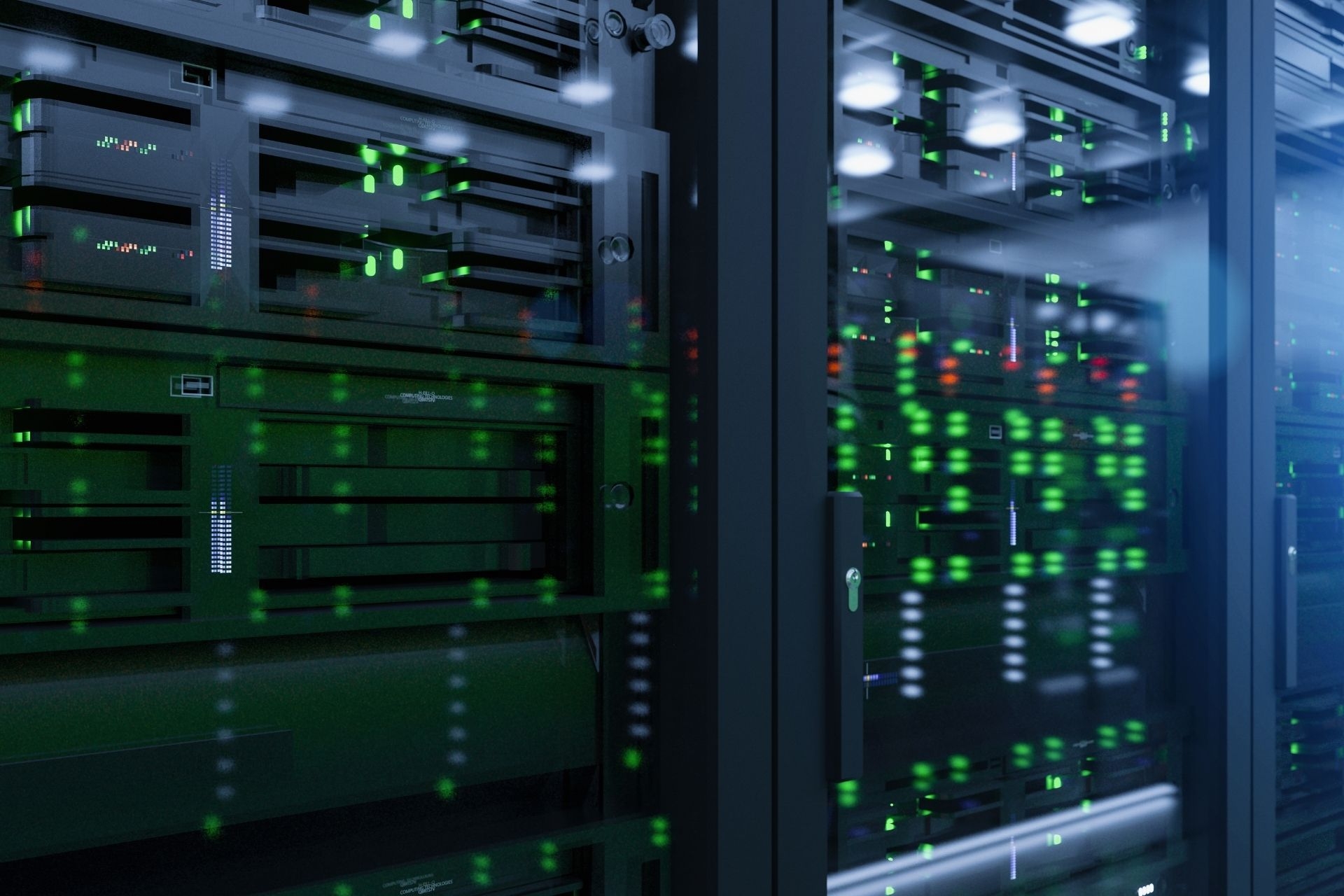

A mesh Wi-Fi network differs from a traditional Wi-Fi network in the way it operates and extends coverage. In a traditional network, a single router is responsible for transmitting the signal throughout the space, which can lead to dead zones and weak connections in larger areas. On the other hand, a mesh network consists of multiple nodes that work together to create a seamless network, allowing for better coverage and improved connectivity.
The advantages of using a mesh Wi-Fi network in a large home or office space are numerous. One of the main benefits is the ability to extend coverage without sacrificing speed or reliability. Mesh networks can easily scale to accommodate a larger area by adding more nodes, ensuring that every corner of the space receives a strong signal. Additionally, mesh networks often come with advanced features such as seamless roaming and self-healing, making them ideal for environments with multiple devices and high bandwidth requirements.
MDU Internet Infrastructure Used Currently For Commercial Applications in 2024
THE MOST IMPORTANT UTILITY™ Dojo Networks provides THE MOST IMPORTANT UTILITY™ service: Reliable high-speed internet access. Internet service is touched by your residents more than their lights, hot water, or heat/AC. MDU owners and property managers agree that residents place a high priority on high-speed internet service and according to a survey by Entrata, a “basic technology package” that includes internet access tops the list of amenities for which residents are willing to pay a premium.

Posted by on 2023-05-19
Multi Dwelling Unit (MDU) Property Owners have been besieged over the past 30 years by cable and telecom companies offering to provide television and high-speed internet services through contracts that vary from simple Right of Entry (ROE) to complicated Installation & Service Agreements. Today, the complexity of these contracts continues to be great, and property owners should use caution and seek professional advice before signing any new or renewal agreements.

Posted by on 2023-05-03
Touched by your residents more than their lights or hot water, the Internet has become a required utility, and managed WiFi is the perfect way to deliver the utility to your tenants. Tenants believe that the Internet should just work—no questions asked, no matter where they are in your building or on your property. You want happy tenants, and you recognize the competitive advantage and potential income that managed WiFi offers. You also know that installing managed WiFi can require a substantial capital investment, so you need to do it right the first time, with a vendor you can trust and rely on. But how do you find the best vendor? What should you require, and what questions should you ask?

Posted by on 2023-04-27
Do you know what you are putting your residents through? by Joe Geroux I have been in the telecommunications Industry for over 30 years! Recently my sister moved from Naples, FL to Nashville, TN and trying to help my big sister get set up in her new apartment was one task I took on as her little brother!

Posted by on 2023-01-19
Yes, mesh Wi-Fi networks are designed to handle multiple devices streaming high-definition video simultaneously. The distributed nature of the network allows for efficient data transmission and load balancing, ensuring that each device receives the necessary bandwidth for smooth streaming. This makes mesh networks a great choice for households or offices with heavy internet usage and a large number of connected devices.

A mesh network ensures seamless connectivity as a user moves around the coverage area through a technology called dynamic routing. Each node in the network communicates with neighboring nodes to determine the best path for data transmission, automatically adjusting as users move around. This dynamic routing feature allows for uninterrupted connectivity and smooth handoffs between nodes, ensuring a seamless experience for users as they move throughout the space.
Security features included in a mesh Wi-Fi network typically aim to protect against cyber threats such as malware, hacking, and unauthorized access. These features may include encryption protocols, firewall protection, intrusion detection systems, and regular software updates to patch vulnerabilities. Additionally, some mesh systems offer advanced security features such as guest network isolation, parental controls, and device-level security settings to enhance overall network security.

While mesh Wi-Fi networks offer greater flexibility in terms of coverage compared to traditional networks, there are limitations to the distance between nodes. The distance between nodes can impact the overall performance and speed of the network, with larger distances potentially leading to slower connections or signal degradation. It is important to strategically place nodes within the coverage area to ensure optimal performance and coverage throughout the space.
The self-healing feature of a mesh Wi-Fi network works to maintain a stable connection by automatically rerouting data through alternative paths in the event of a node failure or signal interference. When a node goes offline or experiences issues, the network dynamically adjusts to redirect traffic through other available nodes, ensuring that users remain connected without interruption. This self-healing capability helps to maintain a reliable and robust network infrastructure, even in the face of potential disruptions.

In MDU environments, network downtime and service disruptions are minimized through the implementation of redundant systems, proactive monitoring, regular maintenance, and efficient troubleshooting protocols. By utilizing fiber-optic technology, load balancing techniques, and failover mechanisms, property managers can ensure uninterrupted connectivity for residents. Additionally, the use of network management software, remote diagnostics, and automated alerts help identify and address issues before they escalate. Collaborating with reliable service providers, conducting periodic audits, and investing in scalable infrastructure also contribute to the overall resilience of the network in MDU settings. By prioritizing reliability, performance, and security, property owners can create a seamless and dependable network experience for their tenants.
When considering MDU internet installations, there are several environmental considerations that must be taken into account. These include the impact on local ecosystems, potential disruption to wildlife habitats, and the use of sustainable materials and practices. It is important to assess the carbon footprint of the installation process, as well as the long-term energy consumption of the internet infrastructure within the MDU. Additionally, proper waste management and recycling practices should be implemented to minimize environmental harm. By incorporating green technologies, such as energy-efficient equipment and renewable energy sources, MDU internet installations can reduce their environmental impact and contribute to a more sustainable future.
IPTV integration with internet services in MDUs involves the delivery of television content over an internet protocol network within multi-dwelling units. This integration allows residents to access a wide range of television channels, on-demand content, and interactive features through a single internet connection. By utilizing fiber-optic or high-speed internet connections, IPTV services can provide high-quality video streaming, seamless channel switching, and advanced features such as video-on-demand, time-shifted TV, and interactive applications. This integration enhances the overall entertainment experience for residents while also simplifying the management and delivery of television services within MDUs. Additionally, IPTV services can be easily bundled with internet and phone services, offering residents a comprehensive and cost-effective solution for their communication and entertainment needs.
When it comes to managing tenant turnovers in relation to MDU internet services, property managers typically work closely with internet service providers to ensure a smooth transition for new tenants. This process may involve coordinating the disconnection of services for outgoing tenants, setting up new accounts for incoming tenants, and scheduling installation appointments. Property managers may also communicate with tenants about the availability of internet services, troubleshooting any issues that may arise during the turnover process. By staying proactive and organized, property managers can minimize disruptions and ensure that tenants have access to reliable internet services throughout the turnover period.